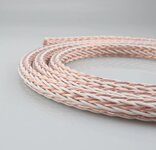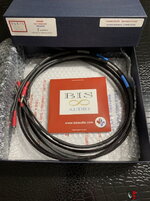Personally I wouldn’t make that promise. Not that I don’t believe your cables make a difference for you, or
@Angsty being obstinate, unwillingly, or untruthful in her/his reports. Rather, because of a psychological effect of
nocebo. In a nutshell, we program ourselves to expect things, and the brain can have a lot more control on if we experience them or not.
Placebo effect is often cited as a reason that someone may find a higher price item to be “better.” It’s essentially a Pavlovian conditioned response. We’ve seen/read/experienced examples of placebo in medicine,
purchasing habits, sensory research, even to were people hooked up to an fMRI have had different pleasure centers activated through suggestion (
Baba Shiv and his wine experiments for example).
Inversely, nocebo is seldom discussed on why another person does not gain/experience benefits. Nocebo is also a subconscious trained response, and potentially just as powerful as placebo.
If I recall correctly Angsty is an engineer. He (or she, just picking a pronoun) has undergone extensive training and has been trained that when there is X, you should observe Y. That’s great for engineering purposes, but can potentially create a trained subconscious response. Potentially producing or amplifying a nocebo effect. One where in a test situation they honestly do not experience the same effects as another.
Engineering and science are awesome, squishy human brains throw all kinds of spanners in the works though.


